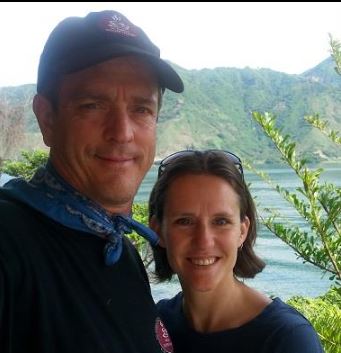SLVH RMC ED is Thanked for Saving Her Life
SLV Health

“I am not one for drama, but literally, the SLVH Regional Medical Center Emergency Department saved my life,” said Rachel Cheslock. “They continued to follow their protocol when at the time, my husband Lance and I were ready to go back home thinking I had indigestion or issues with my esophagus.”
After the third hour of going through the heart attack protocols in the ED at the RMC, Rachel’s earlier symptoms had all but disappeared. As a healthy 45-year-old non-smoker with no underlying causes, she and Lance dismissed the idea of the heart attack she thought she was having earlier in the day. She took an aspirin at home when the pain moved from her chest to her arm, then rested and felt a little better. As she tried to stand up and had difficulty walking, she asked her husband Lance to bring her to the ED in Alamosa.
As they sat waiting for the results from the third blood test, they began planning the rest of their day when they would be released to go home. Then everything changed in a hurry when her third troponin* test resulted in an extremely increased reading. Dr. Laura Edgerley-Gibb approached the couple and said, “We are going to fly you to Penrose Hospital immediately because something is going on.”
After spending time going through many more tests at Penrose, the team used a heart catheter to get an inside look. They found a very unusual situation of a 2.3 cm tear that was creating blockage. It was repaired by inserting two stents.
“The amazing thing about this whole situation is that I do not have heart damage. The EKG never showed that my heart was dying. During my time at the SLVH RMC, they gave me blood thinners, and nitrate, and kept on top of their protocols. Even though the EKG and other tests were not showing any issues, and my pain had mostly subsided, they kept me there and kept me safe. I’d like to share some key takeaways with others.
#1) Don’t ignore your symptoms. Go get checked out. Follow up.
#2) Even though providers are not always 100% sure, they have protocols to follow. Be patient.
#3) The care and professionalism at SLV RMC were second to none. I felt important, I was seen and respected. They were not taking chances, they never doubted me, and everyone treated me with the utmost compassion and kindness.
Lance would like to thank the nursing staff who met Rachel at the door with a wheelchair and followed up with transfer details, always with a professional, kind, and caring attitude: Amanda, Sara, Colleen, and Dr. Edgerley-Gibb! As only Lance can say, “We are incredibly grateful to have such good people in our rural area. The staff did not miss a detail, even ensuring the flight nurse had cardiac experience. We are eternally grateful!”
*A troponin test measures the levels of troponin T or troponin I proteins in the blood. These proteins are released when the heart muscle has been damaged, such as occurs with a heart attack. The more damage there is to the heart, the greater the amount of troponin T will be in the blood.